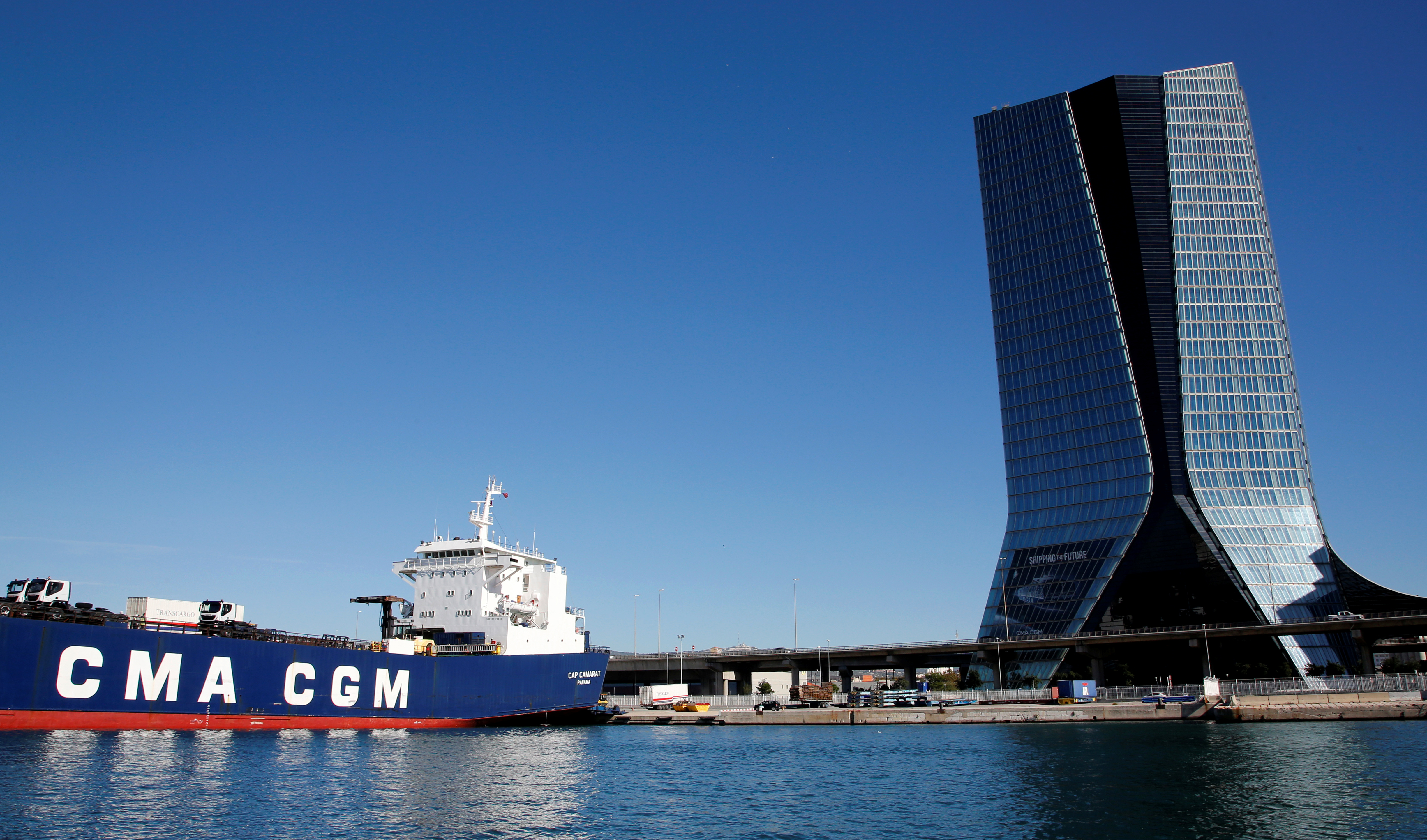French shipper CMA CGM backs away from Russia’s Northern Sea Route
The world's fourth-largest container shipper is also the first to say it won't use Arctic routes.

France’s CMA CGM, the world’s fourth largest container shipping company, has announced that it will not operate in the Arctic due to environmental concerns.
CMA CGM’s Chief Executive and Chairman Rodolphe Saadé announced the news during this weekend’s G7 meeting in Biarritz, France, saying that the company will not be using Russia’s Northern Sea Route to ship goods between Europe and Asia. It is the first major shipping operator to step away from Arctic shipping.
The company’s decision follows calls by France’s President Emmanuel Macron to avoid using new Arctic shipping routes: “This route will kill us in the end, because this route may well be quicker, but it is the consequence of our past irresponsibility.”
In contrast, rivals COSCO and Maersk, are both active on the route. While environmental advocates laud CMA CGM’s decision, the company’s financial cost of walking away from the Arctic is likely minimal as most experts doubt the feasibility of container shipping via the Arctic as an alternative to the traditional Suez Canal route.
“The expected Public Relations effect is considered to be worth much more than the potentially lost market along the NSR,” explains Professor Frédéric Lasserre, Arctic shipping expert at the Université Laval Québec.
Risk of Arctic shipping
CMA CGM said that none of its 500-vessel fleet will sail the Arctic waters of the Northern Sea Route and the company called on its competitors to join it in building a more environmentally-friendly trade. The shipping operator cited, in line with many environmental experts, the unique dangers associated with shipping in the Arctic, ranging from oil spills and risk of accidents to local air pollution from soot and sulfur. With its decision, CMA CGM aims to protect one of the most fragile regions in the world.
The company’s major competitors, Chinese company COSCO, and the world’s largest container shipping company Maersk, have both conducted trips along the NSR and have not made any indications of abandoning the region for environmental concerns. This summer alone, COSCO aims to complete 14 voyages in the Arctic, while Maersk became the first-ever company to send a container ship along the route during August 2018. The company recently announced a cooperation with Russian shipping company Rosatomflot for future shipments along the route.
Continuing environmental efforts
CMA CGM sees its decision as a further step to improving its environmental record. In 2017, it announced that it would equip nine of the largest container ships, each capable of carrying more than 20,000 containers, with engines using liquefied natural gas. At the time it cited its long-standing commitment to protecting the environment as impetus for the decision, which made it the first company in its ranks to announce such a switch to cleaner-burning fuels. By 2022 the company aims to operate 20 LNG-powered vessels in its fleet, more than any other major shipping company.
The switch to LNG — compared to heavy fuel oil, the dirtiest type of marine fuel—results in a 99 percent reduction in sulphur and fine particle emissions and 25 percent less carbon dioxide. In part through the use of larger, more fuel-efficient vessels, the company previously managed a 50 percent reduction of per-container emissions between 2005-2015 with a further planned 30 percent between 2015-2025.
CMA CGM says it has made the decision despite the fact that the route offers “a major competitive advantage for shipping companies.”
However, experts have long questioned the viability of the route for large-scale container shipping due to the industry’s particular logistics. Thus, CMA CGM’s decision to not venture into the Arctic may not come with any measurable financial drawback. “It seems CMA shrouds itself in the virtue of environmental protection while giving up something it did not really want to develop,” suggests Lasserre.
Will others follow suit?
The company’s decision also raises potential questions about the viability of Arctic shipping in light of growing public concern for climate change and environmental activism. Apart from the economic and technical challenges of operating vessels in icy waters, public opinion may also increasingly encourage companies to bow out of the Arctic. Previously, French energy major Total warned against oil drilling in the Arctic and pledged to not engage in offshore oil exploration in the region.
“The question then boils down to: was CMA a lone rider or will other companies follow suit and also make similar announcements and convert poor, mediocre or even average market promises into a short term, high PR profile,” concludes Lasserre.